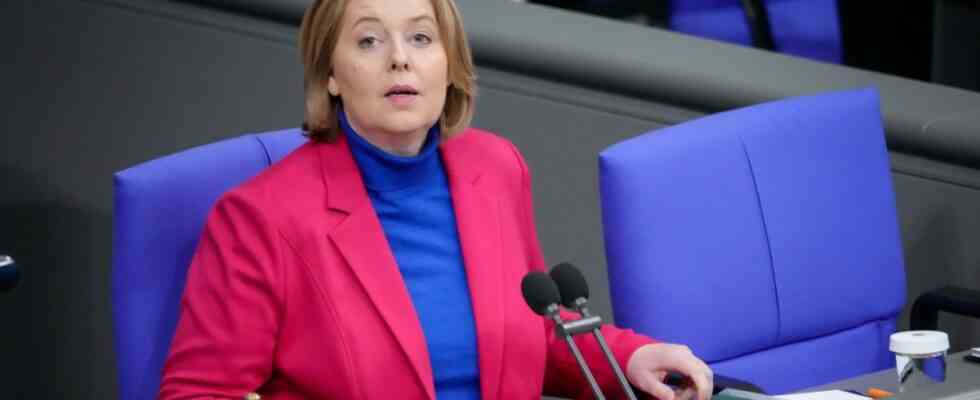Members of the Bundestag should sit for five years instead of four, the President of the Parliament demands. And she wants 16-year-olds to be able to vote in the future.
As President of the Bundestag, Bärbel Bas wants to push ahead with some reform plans: she recently urged the traffic light coalition to finally downsize the Bundestag. In an interview with the German Press Agency, she now advocates extending the parliamentary term from four to five years. That would then be just as long as in 15 out of 16 state parliaments, only in the Bremen Parliament the deputies are elected for one year less. “I can well imagine that. A five-year legislative period would also be good for the German Bundestag,” says the SPD politician. “And maybe one or the other choice could be merged.”
At the same time, the President of the Parliament spoke out in favor of allowing 16-year-olds to vote in federal elections – as is already the case in many local and five state elections and in the future also in the European elections. The fact that the voting age of 18 still applies to the Bundestag is “incomprehensible,” said Bas. The likelihood that someone will vote later increases if they were allowed to vote at a younger age during school. Studies have shown that.
Both proposals are not new, but have been in the coalition agreement between the Greens, SPD and FDP for last year. The FDP advocates longer electoral periods, because the beginning and end of a legislature are already marked by the election campaign and the period in which laws are drafted would therefore be longer. “At the same time, fewer election dates would prevent the long-term election campaign,” wrote the FDP in its election program for 2021. A commission was set up in March to deal in detail with electoral law reform. For both legislative projects, the Basic Law would have to be amended with a two-thirds majority in the Bundestag.
Bas is critical of the fact that many legislative proposals have recently been rushed through parliament. “This must not be permanent.” There have always been crises in which Parliament had to react quickly – such as the financial, refugee or corona crises. “However, too many accelerated procedures are not good for Parliament and the members of parliament – and neither for the solutions in the end.” The MPs need enough time to familiarize themselves with the issues, to consider and weigh up alternatives. “And the citizens must be able to understand the debates and proposals. Otherwise we become alienated.”

